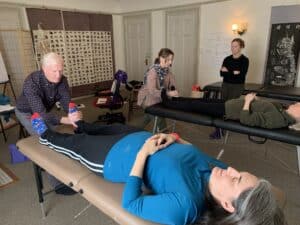Tinnitus is a hearing problem, commonly called “ringing in the ears.” It is a symptom of an underlying auditory system issue. It usually manifests as a ringing sensation in the ears, but it may also sound like hissing, clicking, buzzing, or roaring. According to the National Institute on Deafness and Other Communication Disorders, “roughly 10 percent of the adult population in the United States has experienced tinnitus lasting at least five minutes in the past year.” While tinnitus may subside with time, some individuals find that the symptom does not go away or even worsens. Existing therapies cannot yet cure tinnitus, but some of these approaches, including acupuncture, may offer much-needed relief and reduce the severity of tinnitus.
Conditions Related to Tinnitus
While tinnitus itself is not a disease, it usually indicates an issue with the auditory system. Sometimes, tinnitus occurs from a small blockage, such as earwax, in the ear canal. However, many other health issues can lead to tinnitus, such as ear and sinus infections, heart disease, noise-induced hearing loss, brain tumors, Meniere’s disease, hormonal changes, and thyroid abnormalities. People exposed to excessive noise—from noisy work environments or loud bomb blasts—can develop tinnitus. Those experiencing blood flow issues in the head and neck may develop pulsatile tinnitus, which sounds like a rhythmic pulsing in the ears. Scientists are still trying to understand the mechanisms behind tinnitus, as it appears to begin in the auditory system yet continues in the brain circuitry.
Current Therapies for Tinnitus
There are no known cures for tinnitus. However, Western medicine recommends several therapies to help people with tinnitus learn to cope with the condition. Hearing aids help those who have experienced hearing loss in conjunction with their tinnitus. Wearable sound generations that fit in the ear and emit white noise can help to mask tinnitus. When people struggle with anxiety or depression related to tinnitus, doctors may prescribe antidepressants or antianxiety drugs. However, these pharmaceuticals often carry unpleasant side effects and do not address the underlying causes of tinnitus.
Acupuncture Therapy for Tinnitus Relief
In recent years, several studies have emerged that document the effect of acupuncture on reducing moderate to severe tinnitus. One randomized clinical trial exploring the impact of acupuncture on chronic non-pulsatile tinnitus concluded, “Acupuncture is effective in reducing the loudness and severity of tinnitus and can be a useful treatment.” Another clinical trial study from Iran found, “After the 5th and 10th sessions of treatment, the mean of tinnitus severity index reduced significantly only in the case group,” while the control group experienced no improvement. A randomized controlled pilot study showed that people with acute idiopathic tinnitus reported a reduction in the severity of tinnitus after receiving a series of acupuncture treatments in addition to usual care.
A smaller study out of Brazil found a significant reduction in tinnitus immediately after receiving scalp acupuncture. Subjects receiving either manual or electro-acupuncture therapy showed improvements in tinnitus over the placebo group, according to one randomized, placebo-controlled trial. Additionally, an exploratory study concluded that “three-week deep acupuncture can improve tinnitus symptoms in adult tinnitus patients, which may be related to the regulation of autonomic nervous system balance. While further research is needed to understand the relationship between acupuncture and tinnitus more fully, these studies demonstrate the promising potential of acupuncture therapy.
Call the conveniently located NW Portland office of Inner Works Acupuncture today at (503) 227-2127 to schedule an appointment.



